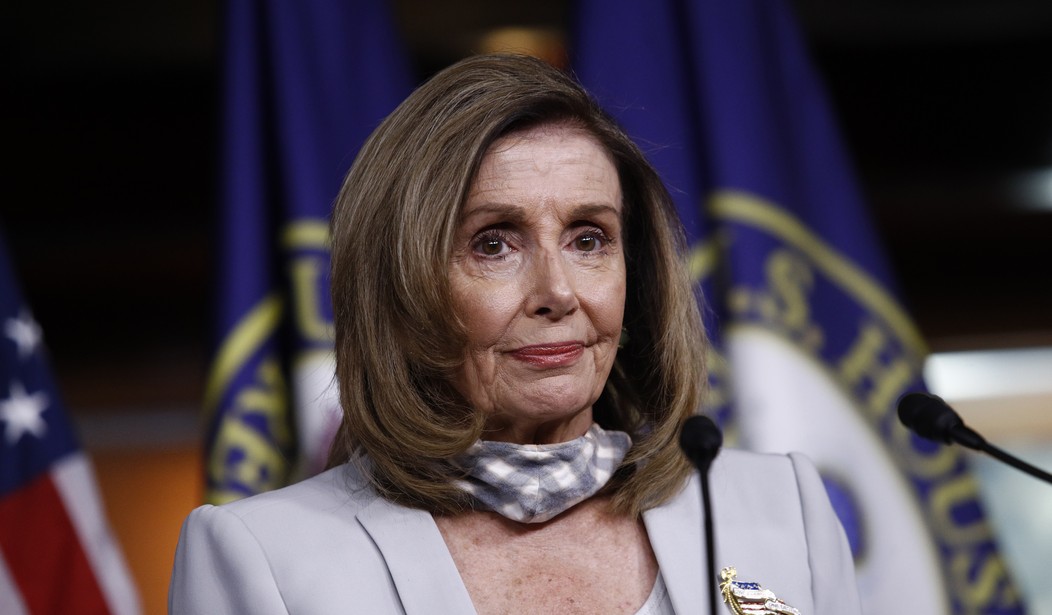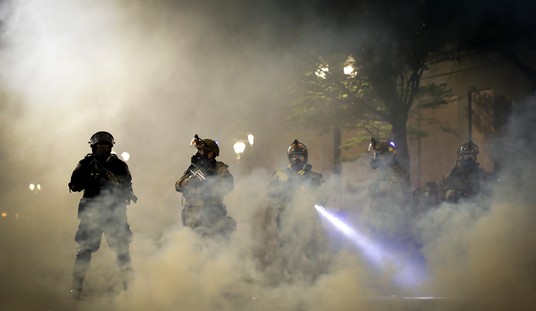Earlier today my RedState colleague Nick Arama reported that House GOP Minority Leader Kevin McCarthy is speculating that Nancy Pelosi may no longer have the votes in the House Democrat caucus to remaining Speaker of the House.
A few days ago, when the late-deciding House races started to go against the Democrats, I wrote this story about the possible implications coming out of the House Democrat Caucus conference call where fingers of blame were being pointed over the losses that were suffered by various incumbents who had faced difficult races.
The news has not improved for Pelosi since I wrote my earlier story — in fact, it has gotten worse in that the Democrats have now lost every close race called so far. It now looks like she has lost — or will lose — 3 Democrat seats in California, her power base. With growing unhappiness on the extreme left-wing of her caucus, the math might end up working against her in the coming vote of the House Caucus on who to nominate for the Speaker’s Chair.
If the remaining races end up as they currently appear on the NTY website, the Democrat’s will lose a total of 7 seats, and the new numbers in the next Congress will be 222 – 213.
Remember from my previous article, I wrote this:
There were 205 Democrats in the 2002 House when the Minority Leader position opened with Gephart’s retirement — it would take 103 votes to claim the spot.
Pelosi used the pure brute force of the size of the California delegation — along with other western states — to go into the contest with more than 60 votes already lined up. Hoyer, being from Maryland, simply could not compete even with the backing of the East Coast and New England Democrat delegations in his corner. Pelosi prevailed to become the Minority Leader over Hoyer who had been ahead of her in line. This was the first time a California House Member became Minority Leader, and she later became Speaker when the Democrats regained the House Majority. During those years Pelosi was a “fire hose” of campaign funds throughout the Democrat caucus, and no meaningful challenge has ever been raised against her.
The challenge to Peloisi will again come from New England Democrats, led by the large New York delegation. The question has always been whether there was a New York Representative who had the ability to harness Wall Street money and media attention the same way that Pelosi has been able to harness Silicon Valley and Hollywood money. I noted in my earlier story that Hakeem Jefferies — currently the Chair of the House Democrat Caucus, the No. 4 leadership position — might just be that guy.
In addition to McCarthy’s comments, there have been rumors bouncing around on Twitter that Pelosi lacks the 112 votes she needs out of the 222 Democrats. Here are some aspects of last Tuesday’s House races that might be coming into play on this issue:
She is likely to lose three seats out of her California delegation — read that to mean that she’s going to lose 3 votes of the 112 she needs, which she received back in 2018. In addition, a fourth seat that was won by a Democrat in 2018 — with that Democrat voting for Pelosi to be Speaker — was lost to the GOP following the resignation of Katie Hill, with her seat being won in a special election by the GOP candidate. So those are 4 votes she had in 2018 that she will not have this year.
The Calif delegation only gives her 42 rather than 46 votes this year — if she holds them all, which she should. Arizona gives her another 4, Nevada another 3, and 2 in Hawaii.
But some of the other far west states — Oregon Washington, and Colorado in particular — are farther to the extreme left wing of the Democrat Party, and she is going to have to fight for those votes against that part of the Democrat Party caucus that is inline politically with AOC and the other socialists. Pelosi’s number of solid, core supporters in the House is probably in the range of 60-65, but the next 55-60 she needs will be tougher for her to get than has been the case in the past.
If you look at the rival faction — New England and New York Democrats — there are now approximately 55-60 Democrat representatives from that region. If they also get the more ultra-liberals in the Pacific Northwest states, and Minnesota, their numbers probably approach 70.
This alignment makes Florida, Illinois and Southern state Democrats the “King Makers” in the caucus. There are 11 Democrats from Illinois, 13 from Florida, and 23 from the other Southern States and Texas combined. That is a combined 47 votes, and both factions likely to vie for the Speaker’s Chair are each within range of getting to 112 with another 40+ votes.
There is certainly a strong sentiment in the Caucus that it is time for a generational change. If Biden wins the White House the Democrat party is going to be led by a 78-year-old President, an 81-year-old Pelosi, and a 69-year-old Schumer.
The clock might be striking midnight for Pelosi’s time as Speaker of the House.















Join the conversation as a VIP Member